![]()
The father of HU (or at least the man who coined the term), Mike Barrett, spoke on the paradox of patient self-management. His presentation was titled, "Don't Ask: Information Aversion and Patient Self-Management." Behavior economics are making real contributions to HU, both heuristics and biases and what they mean for patient self-management tools. There are 3 interrelated challenges to patient self-management: compliance, potential technology solutions, and living the aging process.
Information aversion, a form of what the economists call loss aversion, undermines self management of chronic disease. Research and experiments in behavioral economics suggest effective responses.
Reminiscent of Al Franken and the "Al Franken Decade," Mike used himself as an example of a potential chronic disease train wreck in the making. Referring to the poor decisions many of us make regarding our health, Mike asked the rhetorical question, "why is Mike so dumb?"
Perhaps the better question is why does so much patient self-management appear to be irrational? There are many models of compliance, Mike referred to one from WHO. WHO touts an Information-Motivation-Behavior (IMB) model for promoting compliance, in which information, while insufficient by itself to bring about effective self-management, is necessary to build motivation and guide behavior. So, information is necessary to motivate and guide compliance, but Mike avoids information that may be negative. Isn't that dumb?
Economists and psychologists have collaborated to generate empirical data on behavior economics. This field of research was started by Daniel Kahneman and Amos Tversky in 1979 and won a Nobel in 2002. This field of study integrates insights from rational actor theory, and is also known as prospect theory. The theory asks the question, "How do individuals evaluate uncertain prospects - potential losses and gains?"
Last year Mike talked about how people edit prospects using heuristics, mental shortcuts which simplify the job. This year the focus was on how people evaluate prospects for gains and losses in ways that depart from economic rationality.
As humans we do not experience a weight gain the same as a weight loss. Loss aversion is much stronger psychologically than potential tangible gains. Research is now being done to apply loss-aversion and prospect theory to health care decision making. Aversion to negative information expresses a selective human preference for ignorance.
"When you ask me to self-manage - go on a diet, take my blood pressure, monitor my blood sugar, etc. - you ask me to give up the gratification afforded by the bad behavior, and the blissful ignorance of the effects of the bad behavior," said Mike. This relates directly to creating effective HU services and products.
Asking chronic disease suffers to accept bad news is a different problem than asking them to stop bad behavior, and needs distinctive solutions. Noncompliance is a process (rather than a discrete act) that begins with an aversion to bad news. Decision-making by both patients and physicians in conditions of uncertainty is subject to recurring errors, including loss aversion. Loss aversion is irrational - in terms of self-interest - and predictable. Consequently, patient self-management tools and strategies need to take these decision-making tendencies into account. Fortunately, counter-measures are available.
A key counter measure at this conference is automation. Starting with the alarm clock, subordinating self-management products "embody a general technology trend found inside and outside medicine: the shift from human-in-charge to device-in-charge." The best solutions will not only use technology, but also social engineering to, "prod humans to do things that humans would otherwise not do."
Pictured right is the thought provoking Mike Barrett.
Be sure to check out other posts from this conference here.


Recent Comments